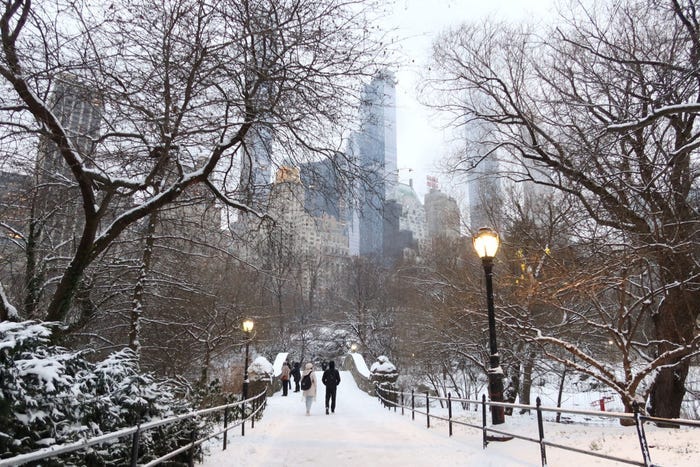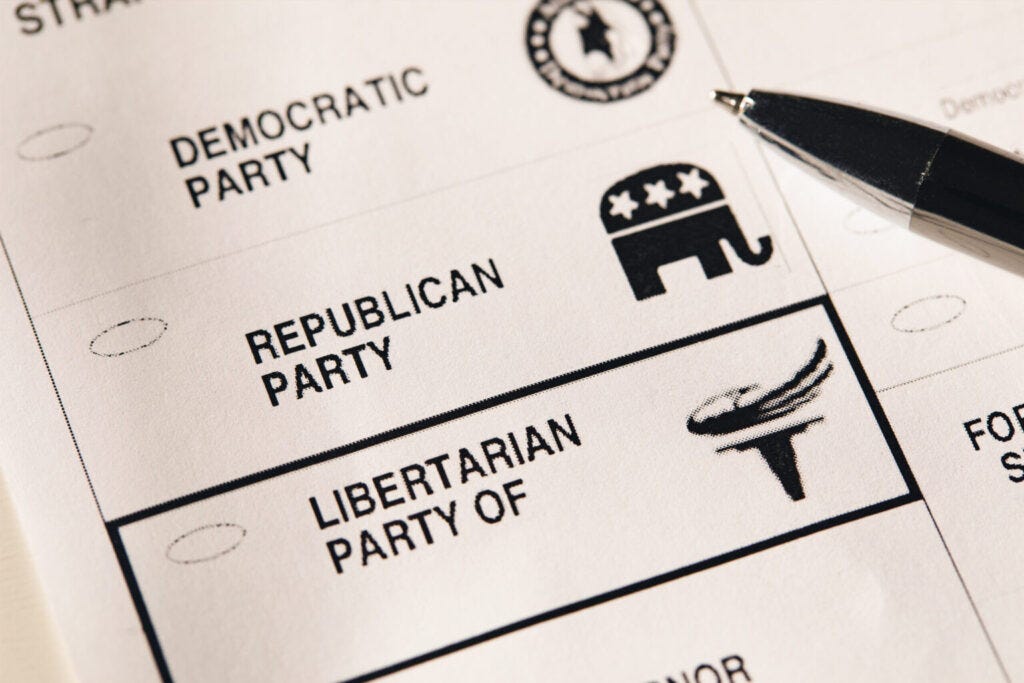Bad Weather On Election Day?

Would storms, rain, or snow prevent you from voting on Election Day?
In the pre-early voting era (before 2020), several studies found that inclement weather was shown to benefit the Republican party's vote share.
One study showed that “A person who would have voted for a Democrat if the weather had been good is likely to vote for a Republican if it's rainy.”
Another study reasoned that “the extra cost of traveling to the polls on a rainy or snowy day decreases Democratic voter turnout and increases Republican turnout.”
The weather may have contributed to two Electoral College outcomes, the 1960 (Kennedy-Nixon) and 2000 (Gore-Bush) presidential elections.
In the former outcome, Republican candidate Richard Nixon’s supporters needed rain to keep these voters from going to the polls.
“The weather was clear all across Massachusetts and New England, perfect for voting as far as the crest of the Alleghenies. But from Michigan through Illinois and the Northern Plains states it was cloudy: rain in Detroit and Chicago, light snow falling in some states on the approaches of the Rockies. The South was enjoying magnificently balmy weather, which ran north as far as the Ohio River; so, too, was the entire Pacific Coast. The weather and the year’s efforts were to call out the greatest free vote in the history of this or any other country.” — Theodor H. White (The Making of the President, 1960)
Nixon didn’t get it.
“In 1960, for instance, it was a remarkably clear day across the entire country. Had it rained that day, we probably would have had a Nixon presidency eight years earlier,” said Brad Gomez, a political scientist at Florida State University
In the latter outcome, Democratic candidate Al Gore’s chance to win Florida was dampened by heavy rain in the Pensacola, Florida, area, according to Gomez.
The most recent congressional election was the Special Election of New York’s Third Congressional District, held two days ago (February 13). Ousted Rep. George Santos formerly occupied the seat.
The Democratic candidate, Tom Suozzi, used “abortion" as his main campaign issue, while the Republican candidate, Mazi Pilip, spoke mainly about border security.
The National Weather Service suddenly issued a “Winter Storm Warning” for New York City and Long Island for Election Day. Last Saturday, Suozzi’s campaign encouraged supporters to get out and vote early by Sunday. Meanwhile, Pilip’s camp expressed less concern about the possibility of snow because the Republicans relied on heavy Election Day in-person turnout.
The weather turned worse! While Democrats hold the advantage in absentee and in-person early voting, which ended Sunday, Republicans should have been counting on a robust Election Day turnout to turn the tide. Oddly, a Republican super PAC hiring private snow plows to clear areas around Republican-leaning precincts.
The election result tells that Suozzi (D) led Pilip (R) by 7.8 percentage points — a more significant margin than pre-election polls predicted — with 93.4 percent of the votes counted this morning.
Therefore, the theory that inclement weather would help elect Republican candidates is dead. The winner is early voting.
‘Republicans Will Encourage Voting Before Election Day’
This phrase was from the blog written by Walter Olson, a senior fellow at the Cato Institute, on September 22, 2023.

Unlike in the 1800s, there are now options to cast early votes
There are twenty-eight states that have "no-excuse" absentee voting, which means that any voter can request and cast an absentee/mail ballot with no excuse or reason necessary.
Eight states – Oregon (2000), Washington (2011), Colorado (2014), Utah (2019), Hawaii (2020), California (2022), Nevada (2022), and Vermont (2022) – automatically mail ballots to registered voters. Plus Washington, DC (2023).
Fourteen states require an excuse to vote absentee: Alabama, Arkansas, Connecticut, Delaware, Indiana, Kentucky, Louisiana, Mississippi, Missouri, New Hampshire, South Carolina, Tennessee, Texas, and West Virginia.
In the past decade, the growing number of “no-excuse” and “all-mail” states meant heightened motivation among Democrats. Remember that the onset of COVID-19 also increased early and mail voting.
So, on July 7, 2023, the Republican National Committee (RNC) erased their early criticism of mail voting, early ballots, and ballot harvesting and launched an effort to increase early-vote turnout in 2024.
Olson believes that “mail and drop box voting appeals to many constituencies among whom Republicans tend to do well, such as retirees and homemaking moms.”
It seems that the RNC failed to educate Republican registered voters of N.Y.’s 3rd Congressional District about early voting.
My Experience?
In the 2000s, I had to tell the county election office of the “excuse” state of Maryland why I couldn’t vote — that I, as a divorced father, had my child with me that day since Election Day is a state holiday (a no-school day.)
Then, I voted by mail while I lived in the “all-mail-by-voting” state of Washington State for four years (2012-16).
At first, I thought voting by mail was an excellent option for the following reasons:
I did not have to explain to a local election board;
I did not stand in a long, long line to cast my vote at a local polling place, and
I knew that my preferred candidates were still on the ballot.
But ……
Potential for fraud or coercion?
Back in Washington, I asked a deaf friend whether her deaf estranged husband, working in South Korea with the U.S. Department of Defense, would vote by absentee ballot. She replied that she had cast a vote for him.
In 2005, one Washingtonian admitted he cast a ballot for his recently deceased wife in the 2004 general election. He pleaded guilty to voting twice in an election.
In 2010, another Washingtonian was convicted of illegal registration in the wrong county, absentee ballot fraud, and illegal double voting in the 2008 general election. She submitted a ballot for her son, a convicted felon and ineligible to vote. And so on!
As a former vote-by-mail advocate who later became the director of the No Vote By Mail Project, Gentry Lange of Seattle explained on his website:
“I recall casting my ballot (by dropping it in the outgoing mail of my girlfriend’s apartment in Seattle, where I was staying) a full day before the election. But oddly, they didn’t get it in time. I guess that outgoing mail isn’t routinely checked in many apartment buildings. So, my mistake was in trusting the system. I should have dropped my ballot off at the post office or directly at elections. But the system encourages you to follow your folly and toss it in the mail, so I tried it… and I failed.”
Audrey Kline, policy director of the National Vote at Home Institute, recently told StreetsBlog, “It’s 99.9-percent secure. If you reach into someone’s mailbox, fill out her ballot, sign it, and send it in, you’re going to get caught, and you’re going to be tried for mail fraud and voter fraud.”
To question whether vote-by-mail increases voter fraud, MIT Election Data and Science Lab responded, “There are two major features of Vote-by-Mail that raise these concerns. First, the ballot is cast outside the public eye, and thus the opportunities for coercion and voter impersonation are greater. Second, the transmission path for VBM ballots is not as secure as traditional in-person ballots. These concerns relate both to ballots being intercepted and ballots being requested without the voter’s permission.”
Advice!
I am giving you this friendly advice:
Don’t cast a vote on another person’s voting ballot! Or you will face a fine.
Don’t hand your ballot to another person; please drop it into a secure mailbox or designated drop box. Or your vote might be wasted.
If you feel nostalgic, you can wait until Election Day to mail it or drop it off, depending on state law.




